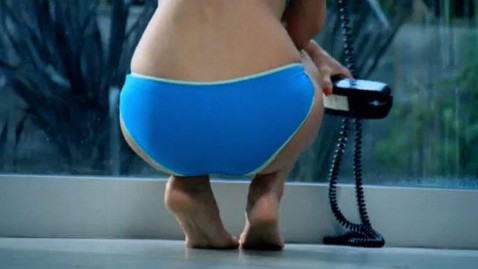Reebok to Refund $25 Million for False Advertising
There’s sadly more to getting a great body than buying a pair of shoes. So you’re in for a refund if, like millions of others, you bought into Reebok’s alluring promise that it’s toning sneakers would “make your legs and butt look great.”
The Federal Trade Commission announced today that Reebok has agreed to pay $25 million to settle charges it misled consumers with false claims about EasyTone walking shoes and RunTone running shoes. Ads for Reebok’s toning shoes boasted lab tests had proved the sole’s special design would help lead to a more perfect body.
“It’s the shoe proven to work your hamstrings and calves up to 11 percent harder and tone your butt up to 28 percent more than regular sneakers,” a narrator said in one such TV ad. “Just by walking.”

In the TV spots, some of which aired on ABC, the scientific claims were underscored by close-up shots of perfectly toned legs and tight backsides.
But in settlement papers filed today in a federal court, the FTC said the claims were false.
“In truth and in fact,” the settlement agreement reads, “laboratory tests do not show that when compared to walking in a typical walking shoe, walking in EasyTone footwear will improve muscle tone and strength by 28 percent in the gluteus maximus, 11 percent in the hamstrings and 11 percent in the calves.”
“The consumers expected to get a workout. Not to get worked over,” David Vladeck, director of the FTC’s Bureau of Consumer Protection, told reporters. “Advertisers cannot make claims about their products, particularly not objective claims like this, without having some basis for it. That’s the law.”
The ads ran in 2009 and 2010, but Reebok pulled them off the air and out of magazines after the FTC began its investigation.
After it’s approved by the court, the $25 million will go into a pot for consumer refunds. Consumers can file online to receive a refund at: http://ftc.gov/reebok
In a prepared statement Reebok insisted, “We stand behind our EasyTone technology.”
“Settling does not mean we agree with the FTC’s allegations,” the statement reads. “We do not. We have received overwhelmingly enthusiastic feedback from thousands of EasyTone customers, and we remain committed to the further development of our EasyTone line of products.”
The market for toning shoes has exploded in recent years. The FTC said sales of the shoes, which are designed with soles that create instability, increased from $17 million in 2008 to “close to $1 billion” last year.
The settlement referenced in this story can be read here: http://www.ftc.gov/os/caselist/1023070/index.shtm
The TV ad referenced in this story can be viewed here: http://www.ftc.gov/opa/2011/09/video/fitness.shtm